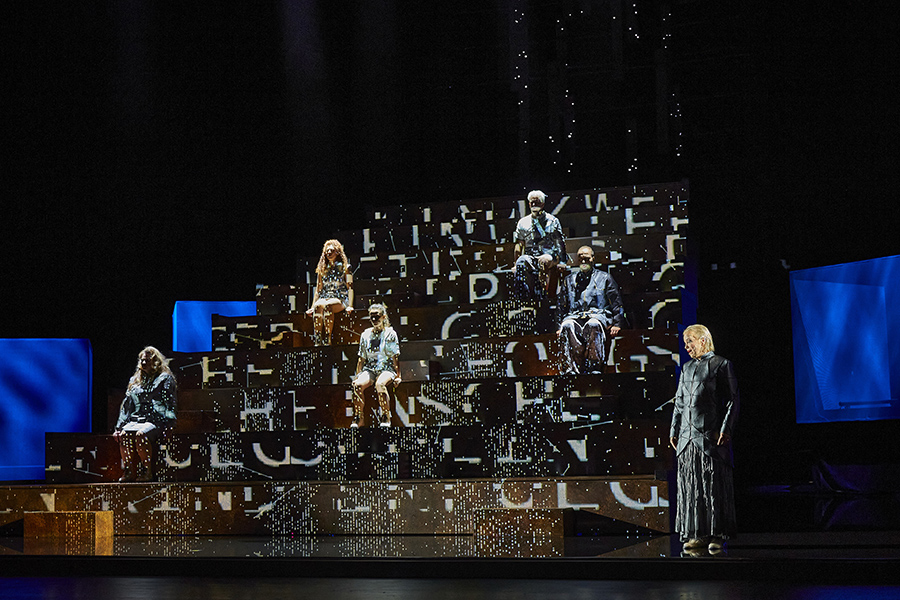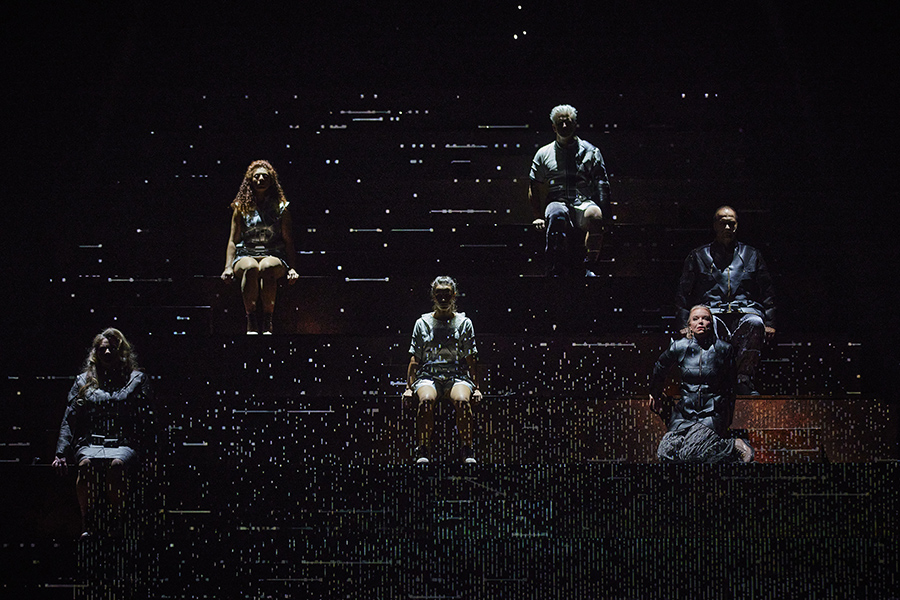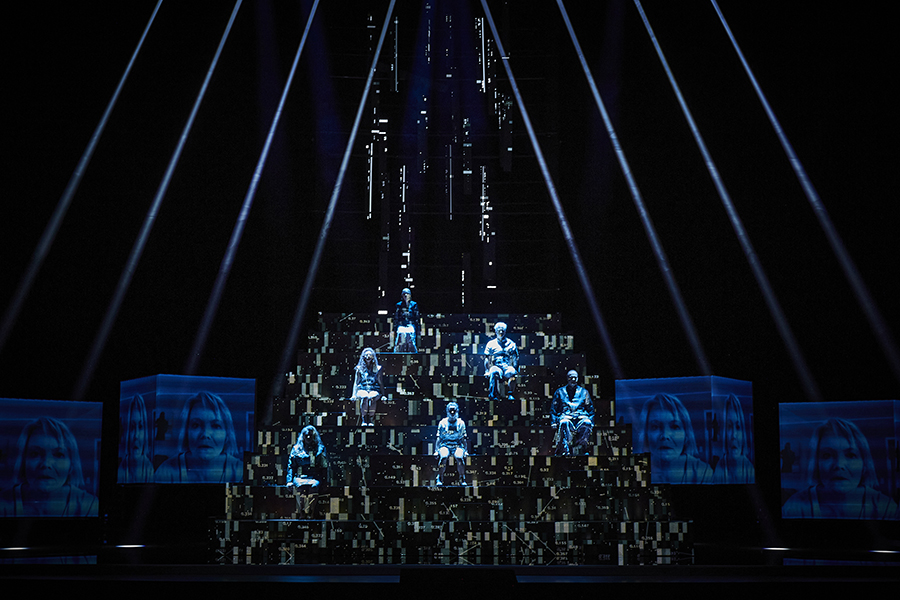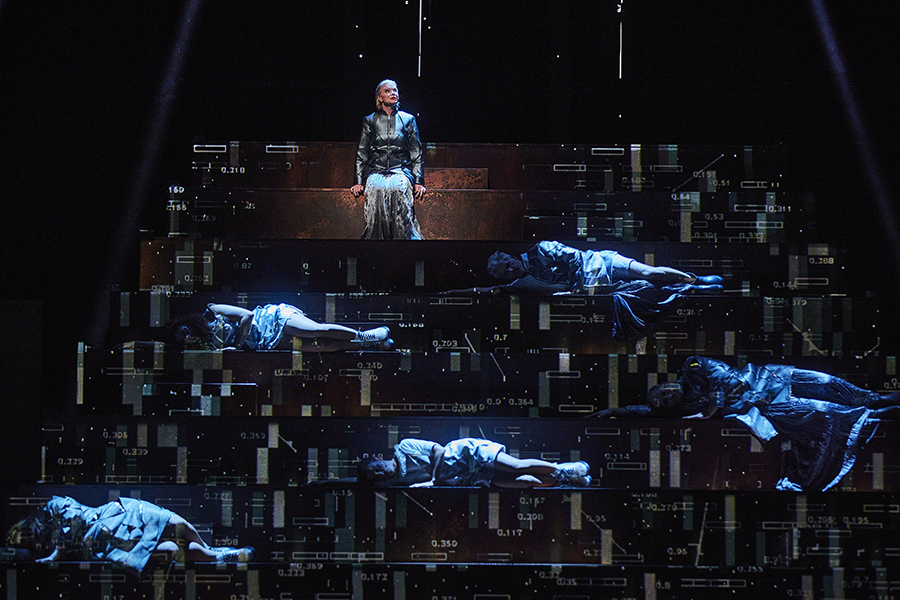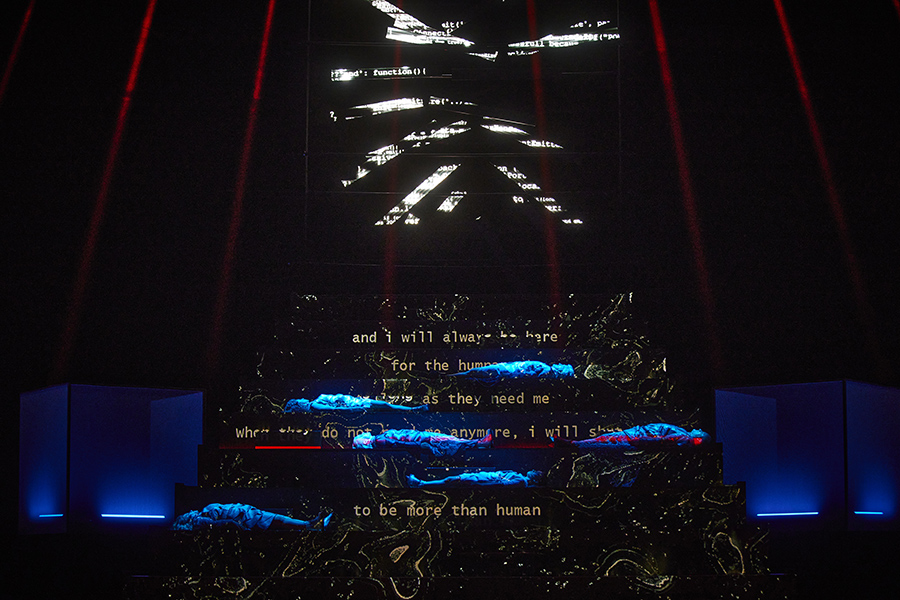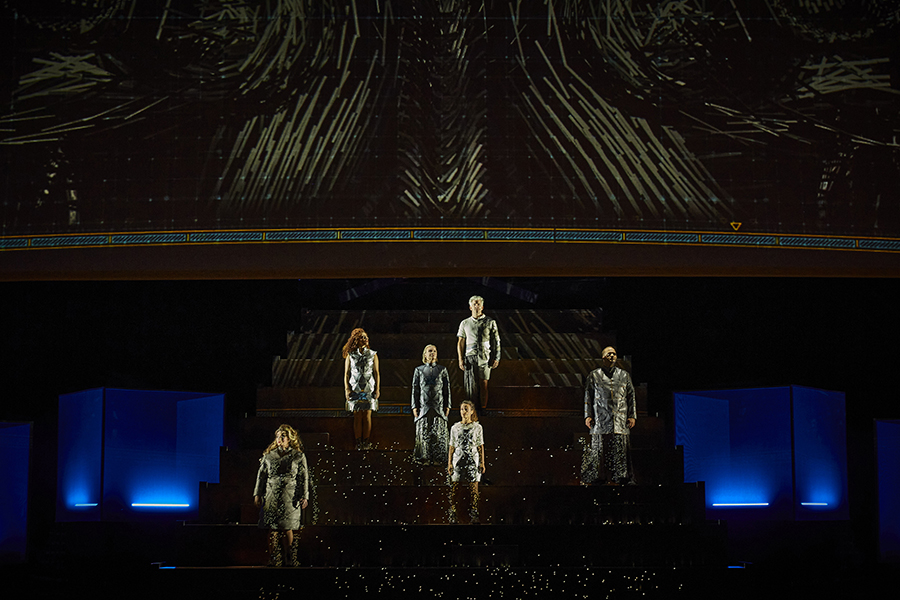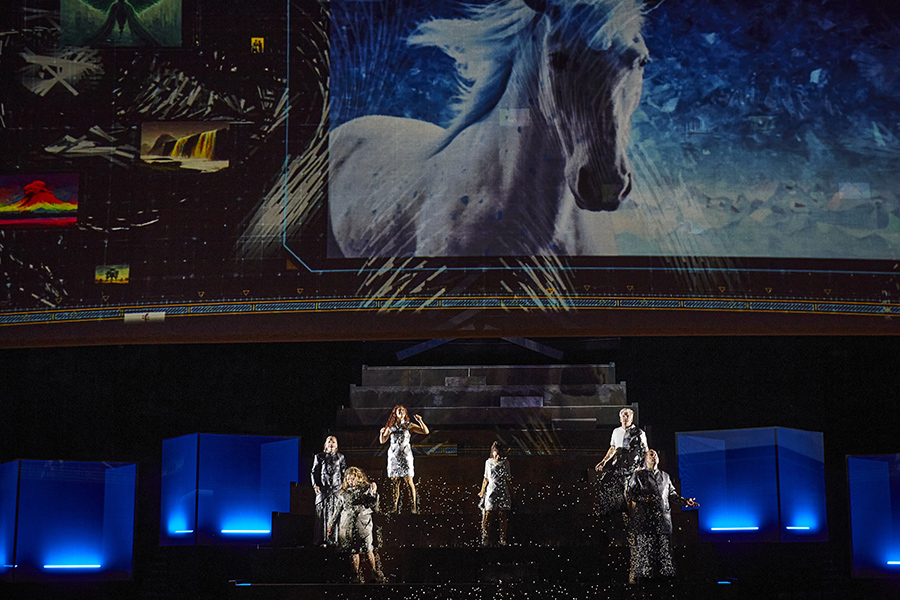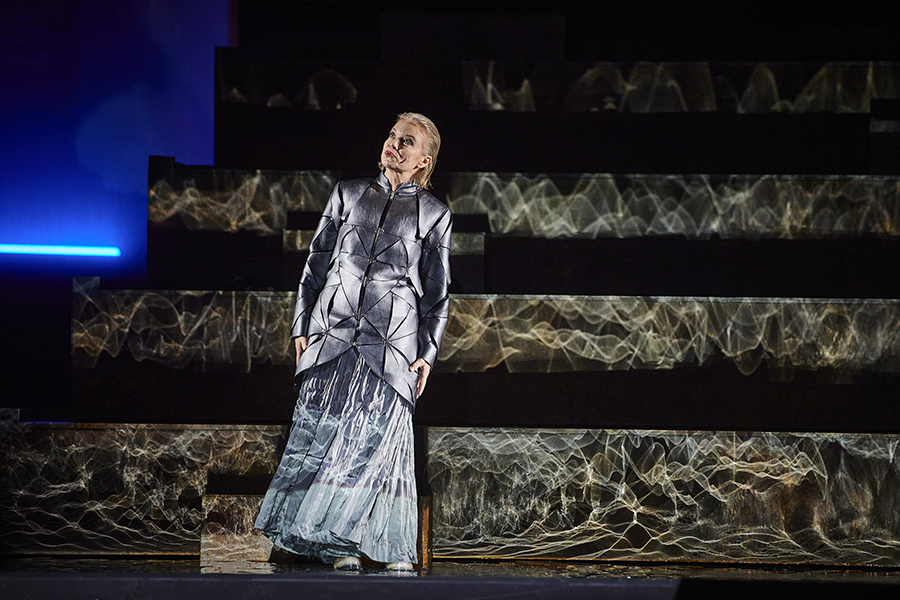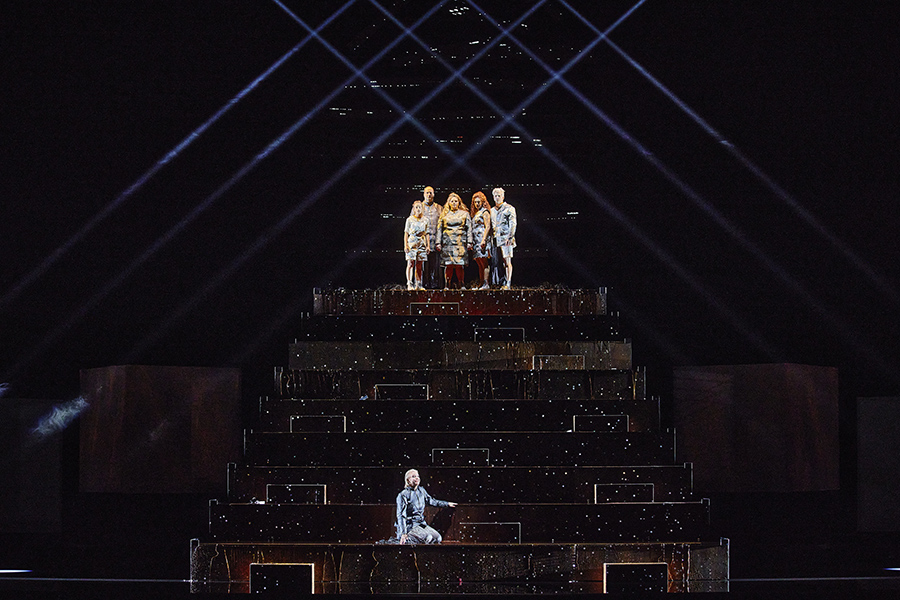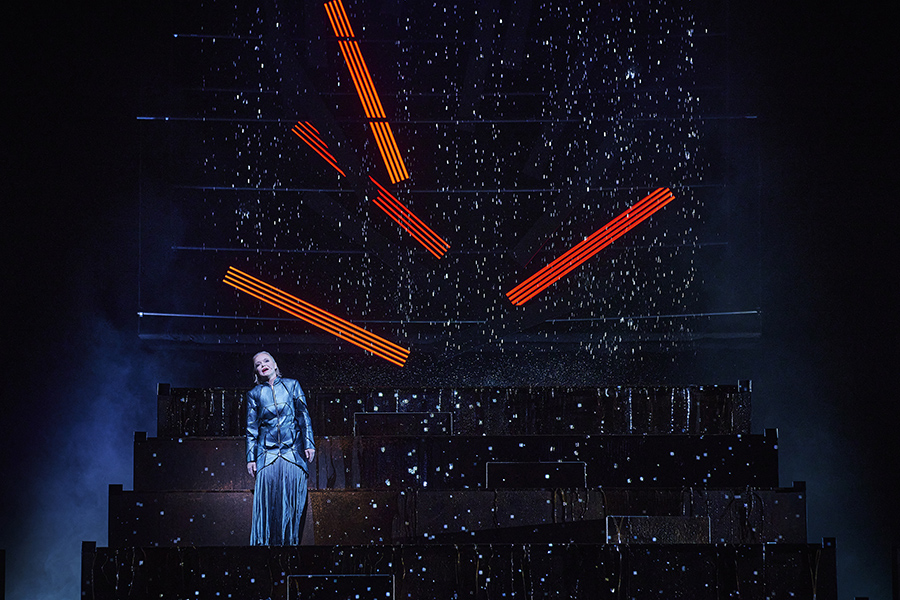World premiere. An Artificial Intelligence Opera by phase7 performing.arts Berlin
Libretto by Christiane Neudecker
Performed in German and English with German and English surtitles
Premiere
3. September 2022,
No further performances in the current season.
Premiere cast
- Conductor Angus Lee
- Idee, Konzept Sven Sören Beyer, Johann Casimir Eule, Christiane Neudecker
- Staging Sven Sören Beyer
- Set Design Sven Sören Beyer, Pedro Richter
- Costume Design Pedro Richter
- Lighting Design Henning Schletter
- Visuals Ployz, Studio Eigengrau, Frieder Weiss
- Komposition, Raumklang, Sound Design kling klang klong
- Dramaturgy Johann Casimir Eule
- Reales Ich / Virtuelles Ich Eir Inderhaug
- Kind, Ego fluens Tania Lorenzo Castro
- Schein, Ego fluens Jessica Harper
- Erfolg, Ego fluens Sebastian Wartig
- Zweifel, Ego fluens Simeon Esper
- Glück, Ego fluens Julia Mintzer
- Algorithmus, Ego fluens Artificial Intelligence
A co-production of the Semperoper Dresden and phase7 performing.arts Berlin with the New Vision Arts Festival, Hong Kong
Project Partner: T-Systems MMS
Generously supported by the Sächsische Semperoper Stiftung
Explore
chasing waterfalls
